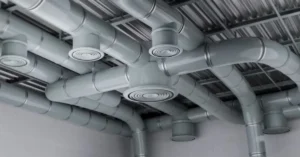In an era where architectural innovation meets fiscal responsibility, the QS House emerges as a paradigm of contemporary design harmonized with meticulous cost management. This concept, rooted in the principles of quantity surveying (QS), redefines residential construction by emphasizing both aesthetic appeal and budgetary discipline.
Understanding the QS House Concept
The term “QS House” encapsulates a residential design approach that integrates the expertise of quantity surveyors from the project’s inception. Quantity surveyors play a pivotal role in forecasting costs, managing budgets, and ensuring that the construction process adheres to financial constraints without compromising on quality or design integrity.
Core Principles of QS House Design
1. Budget-Centric Planning
At the heart of the QS House is a commitment to financial transparency. By involving quantity surveyors early in the design phase, homeowners gain a clear understanding of potential costs, enabling informed decisions that align with their financial goals.
2. Efficient Space Utilization
These houses prioritize functionality. Designs focus on maximizing usable space, reducing unnecessary complexities, and ensuring that every square foot serves a purpose. This efficiency not only curtails construction costs but also enhances livability.
3. Sustainable Material Selection
Incorporating sustainable and locally sourced materials is a hallmark of QS House design. This approach reduces environmental impact and often results in cost savings, as local materials typically entail lower transportation expenses and support regional economies.
4. Lifecycle Cost Analysis
Beyond initial construction expenses, QS Houses consider long-term costs associated with maintenance, energy consumption, and potential renovations. This holistic view ensures that homeowners are prepared for future financial commitments related to their property.
Advantages of Embracing the QS House Model
- Financial Predictability: Early and continuous cost assessments provide homeowners with a realistic budget framework, minimizing the risk of unforeseen expenses.
- Design Integrity: Collaborative efforts between architects and quantity surveyors ensure that aesthetic aspirations are met without financial overreach.
- Enhanced Value: Efficient designs and sustainable practices contribute to increased property value and appeal in the real estate market.
Implementing QS Principles in Your Home Project
- Engage Early: Involve a quantity surveyor at the project’s outset to establish a clear budget and cost plan.
- Collaborative Design: Foster open communication between architects, builders, and the QS to align design objectives with financial parameters.
- Regular Reviews: Conduct periodic assessments throughout the construction process to ensure adherence to the budget and to address any financial deviations promptly.
Real-World Applications of QS House Principles
Several contemporary residential projects exemplify the successful integration of QS principles:
- B House by CH+QS Arquitectos: This Spanish residence showcases how thoughtful design and cost management can coexist, resulting in a home that is both aesthetically pleasing and financially prudent.
- Q House in Vietnam: A testament to efficient space utilization and sustainable material use, this project highlights the benefits of QS-informed design in a tropical context.
Conclusion
The QS House model represents a forward-thinking approach to residential construction, where design excellence and financial responsibility are not mutually exclusive but rather complementary forces. By embracing the principles of quantity surveying, homeowners can achieve their dream homes without compromising on quality or exceeding their budgets.
Frequently Asked Questions (FAQs)
Q1: What is a QS House?
A QS House is a residential building designed with the active involvement of a quantity surveyor to ensure cost-effective construction without compromising on design quality.
Q2: Why involve a quantity surveyor early in the design process?
Early involvement allows for accurate budgeting, cost forecasting, and financial planning, reducing the risk of budget overruns.
Q3: Can QS principles be applied to renovations?
Absolutely. Quantity surveyors can assess renovation projects to ensure cost efficiency and value optimization.
Q4: How do QS Houses contribute to sustainability?
By selecting local and sustainable materials and focusing on efficient design, QS Houses minimize environmental impact and promote long-term sustainability.
Q5: Are QS Houses more affordable than traditional homes?
While initial costs may be comparable, QS Houses often result in long-term savings due to efficient design and reduced maintenance expenses.









